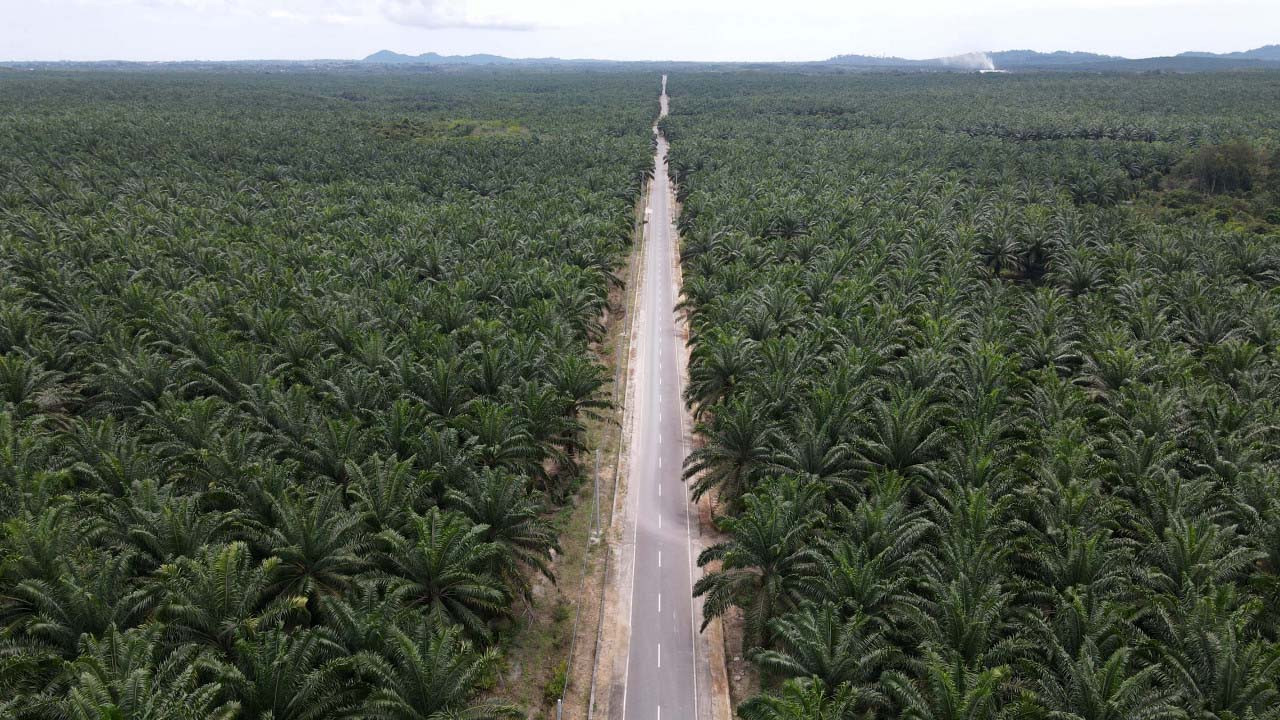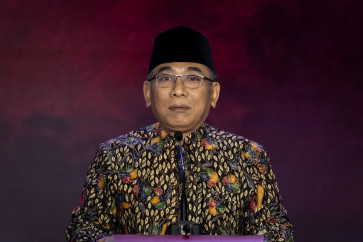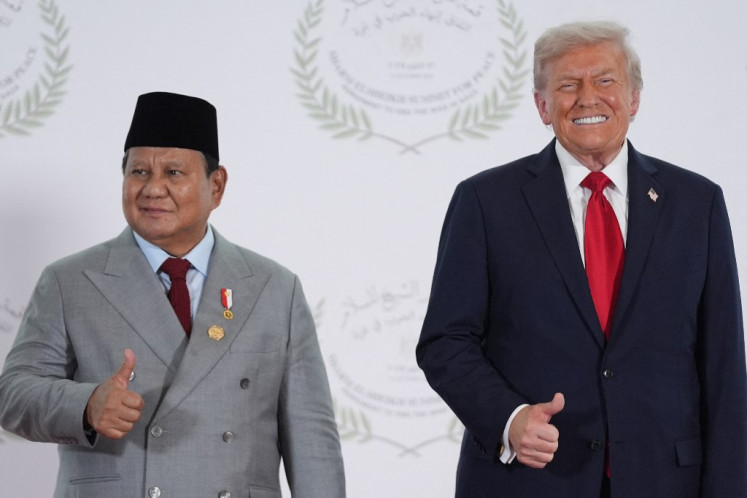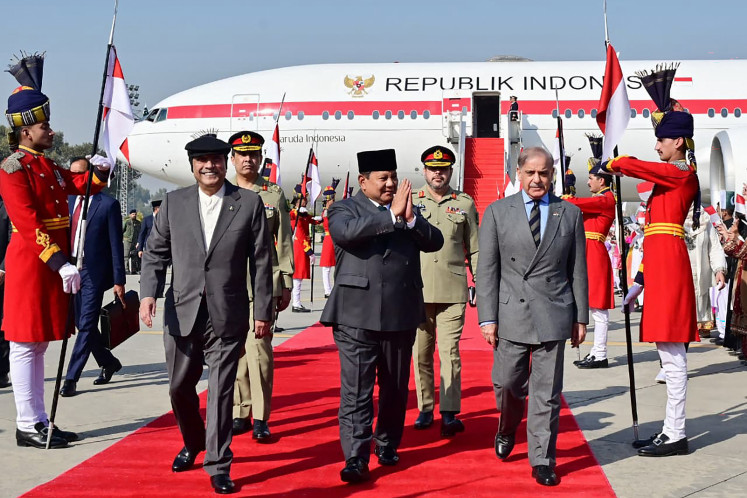Popular Reads
Top Results
Can't find what you're looking for?
View all search resultsPopular Reads
Top Results
Can't find what you're looking for?
View all search resultsTransparency key to competitive palm oil industry
Experts say that data transparency will help resolve the trade spat with the European Union and the cooking oil scarcity in Indonesia, among other industry-related problems.
Change text size
Gift Premium Articles
to Anyone
D
ata transparency and comprehensiveness are key to enhancing the competitive edge of the palm oil industry, experts concluded at a recent webinar.
Andika Putraditama, deputy director of agriculture, forestry and other land use at World Research Institute (WRI) Indonesia, suggested the government improve data management and transparency in the palm oil industry to tackle a myriad of challenges, including the palm oil trade spat with the European Union and the domestic scarcity of cooking oil.
“We cannot develop the palm oil industry to its full potential without accurate [and transparent] data on the industry,” he said during The Jakarta Post’s Spotlight webinar on Thursday.
He added that mapping and differentiating legal from illegal palm oil plantations was one step toward gaining the trust of international stakeholders, referring to the EU directive that categorizes palm oil as an unsustainable product, and lays out plans to phase out its use in biofuels by 2030.
Read also: Improving sustainable Indonesian palm oil
The sector has also been marred by tax-evasion issues with estimated potential state losses of between Rp 2.83 trillion (US$ 197.7 million) and Rp 3.63 trillion annually due to alleged tax evasion in the industry, according to a collaborative 2021 study conducted by a civil group Auriga Nusantara along with news outlets Tempo, Mongabay Indonesia and Betahita.
The potential loss in tax revenue is in stark contrast with the current industry landscape, where exports of crude palm oil (CPO) and its derivative products have become a significant element of Indonesia’s trade, Transparency International Indonesia researcher Bellicia Angelica said in a discussion on Jan. 11.
Read also: Civil groups call for more transparency in oil palm governance
Similarly, Jakarta-based Centre for Strategic and International Studies (CSIS) economic researcher Fajar Hirawan said comprehensive data on extractive commodities, such as palm oil, would be critical to anticipate the effects of global supply and demand on the domestic market.
“Scarcity needs to be anticipated when the government determines a new retail price ceiling [HET],” he said in the same webinar.
The government aimed to make cooking oil more affordable through a so-called domestic market obligation (DMO) and a domestic price obligation (DPO).
The obligations, imposed on Jan. 27, mandate producers to sell a portion of their products on the domestic market at a maximum price of Rp 9,300 (65 US cents) per kilogram for CPO and Rp 10,300 per kg for olein.
The requirement comes as the world’s top producer and exporter of palm oil tries to curtail a rise in domestic cooking oil prices that have climbed about 40 percent from a year ago in line with high global CPO prices.
“All exporters must allocate 20 percent of their export volume in the form of CPO to the domestic market at a price of Rp. 9,300/kg,” Trade Minister Muhammad Lutfi said in a statement issued on Jan. 31.
Read also: Govt forces CPO firms to ensure cheap domestic supply
Djatmiko Bris Witjaksono, the trade ministry’s international trade cooperation director general, said the government was committed to improving palm oil sustainability, noting that the country has roughly 2.5 million farmers in the palm oil sector.
However, he also reiterated the government's stance on the EU's trade policy on palm oil, “[Indonesia] is facing a unilateral trade policy based on unjustified environmental grounds by a certain number of our trading partners.”











